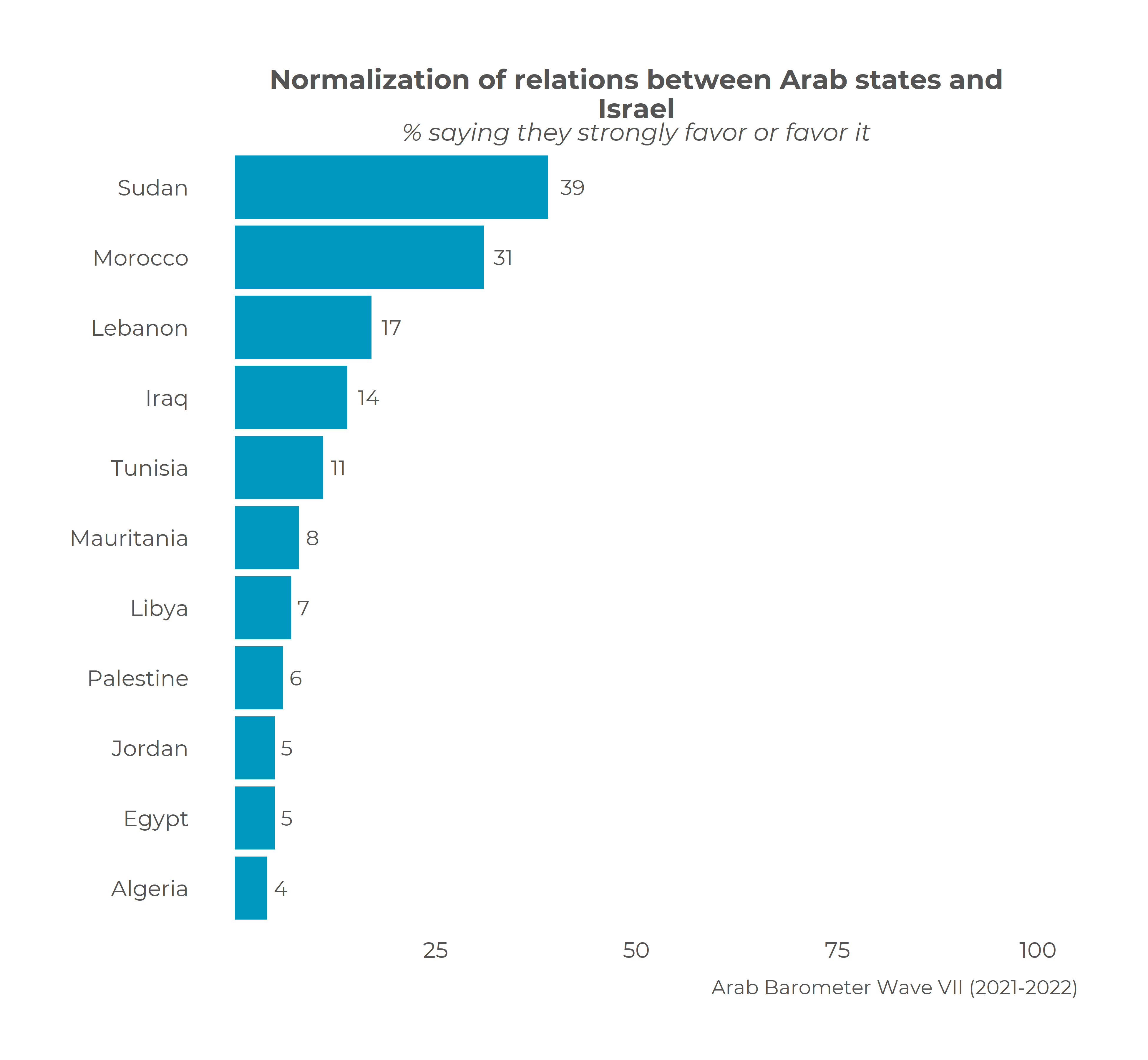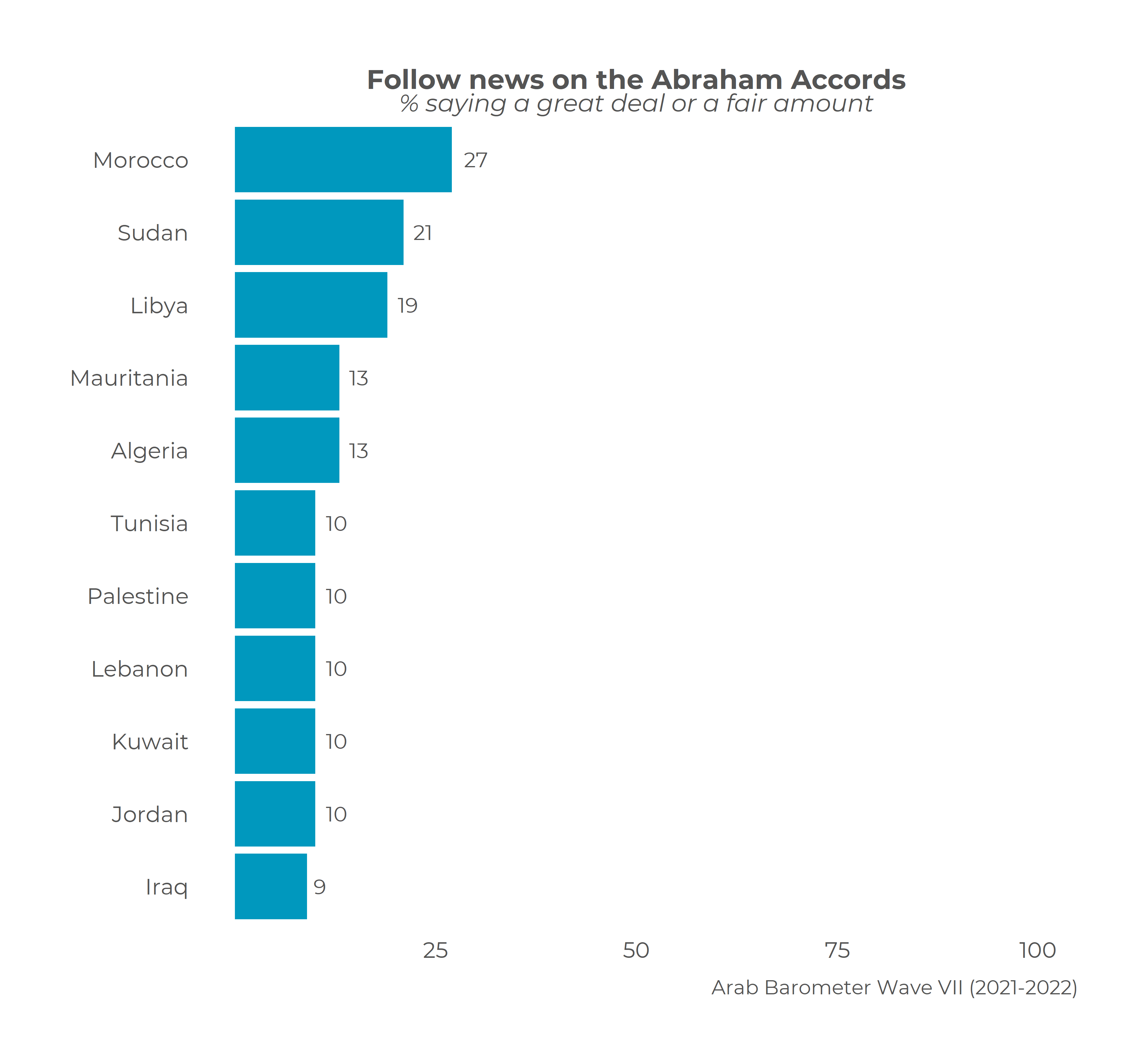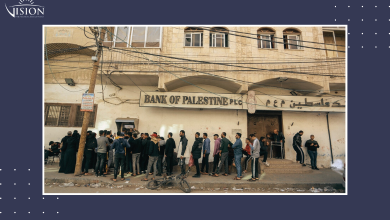How Do MENA Citizens View Normalization With Israel?

There is broad rejection among ordinary citizens across MENA of the U.S.-backed Abraham Accords and a broader peace deal with Israel. Although at most about a quarter of citizens in the region say they follow news on this issue a great deal or fair amount, including just one-in-ten in Tunisia, Palestine, Lebanon, Jordan, and Iraq, these peace agreements are widely rejected overall. In nine of the 11 countries surveyed, fewer than one-in-five say they support normalization agreements with Israel, including fewer than one-in-ten in Mauritania (8 percent), Libya (7 percent), Palestine (6 percent), Jordan (5 percent), and Egypt (5 percent).
However, the two exceptions—Sudan and Morocco—are notable. In the former, 39 percent favor normalization with Israel compared with 31 percent in the latter. These two countries are part of the broader Abraham Accords, with Morocco having completed the normalization process with Israel while Sudan has initiated the process. In the case of Morocco, the U.S. recognized Moroccan sovereignty over Western Sahara simultaneously with normalization. In the case of Sudan, the U.S. committed to removing Sudan from the list of state sponsors of terrorism as part of the normalization process. As such, it is possible that the relative popularity of normalization in both countries is the result of citizens focusing on the strategic benefits that each agreement has brought to their country. But, judging by the broad rejection of normalization with Israel by Jordanians and Egyptians, whose governments made peace with Israel a generation ago, these relatively favorable views toward peace with Israel may fade over time.
This Article Has Been Originally Published by Arab-barometer







